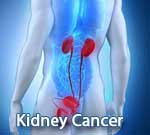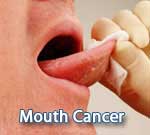Rectal Cancer
Followup Care:
Nutrition and Physical Activity
It is important to eat well and stay as active as you can.
You need the right amount of calories to maintain a good weight during and after cancer treatment. You also need enough protein, vitamins, and minerals. Eating well may help you feel better and have more energy.
Eating well can be hard. Sometimes, especially during or soon after treatment, you may not feel like eating. You may be uncomfortable or tired. You may find that foods do not taste as good as they used to. You also may have nausea, vomiting, diarrhea, or mouth sores.
Many people find they feel better when they stay active. Walking, yoga, swimming, and other activities can keep you strong and increase your energy. Whatever physical activity you choose, be sure to talk to your doctor before you start. Also, if your activity causes you pain or other problems be sure to let your doctor or nurse knows about it.
Rehabilitation
Rehabilitation is an important part of cancer care. Your health care team makes every effort to help you return to normal activities as soon as possible.
If you have a stoma, you need to learn to care for it. Doctors, nurses, and Enterostomal therapists can help. Often, Enterostomal therapists visit you before surgery to discuss what to expect. They teach you how to care for the stoma after surgery. They talk about lifestyle issues, including emotional, physical, and sexual concerns. Often they can provide information about resources and support groups
Follow-up care after treatment for colorectal cancer is important. Even when the cancer seems to have been completely removed or destroyed, the disease sometimes returns because undetected cancer cells remained somewhere in the body after treatment. Your doctor monitors your recovery and checks for recurrence of the cancer. Checkups help ensure that any changes in health are noted and treated if needed.
Checkups may include a physical exam (including a digital rectal exam), lab tests (including fecal occult blood test and CEA test), colonoscopy, x-rays, CT scans, or other tests.
If you have any health problems between checkups, you should contact your doctor





































